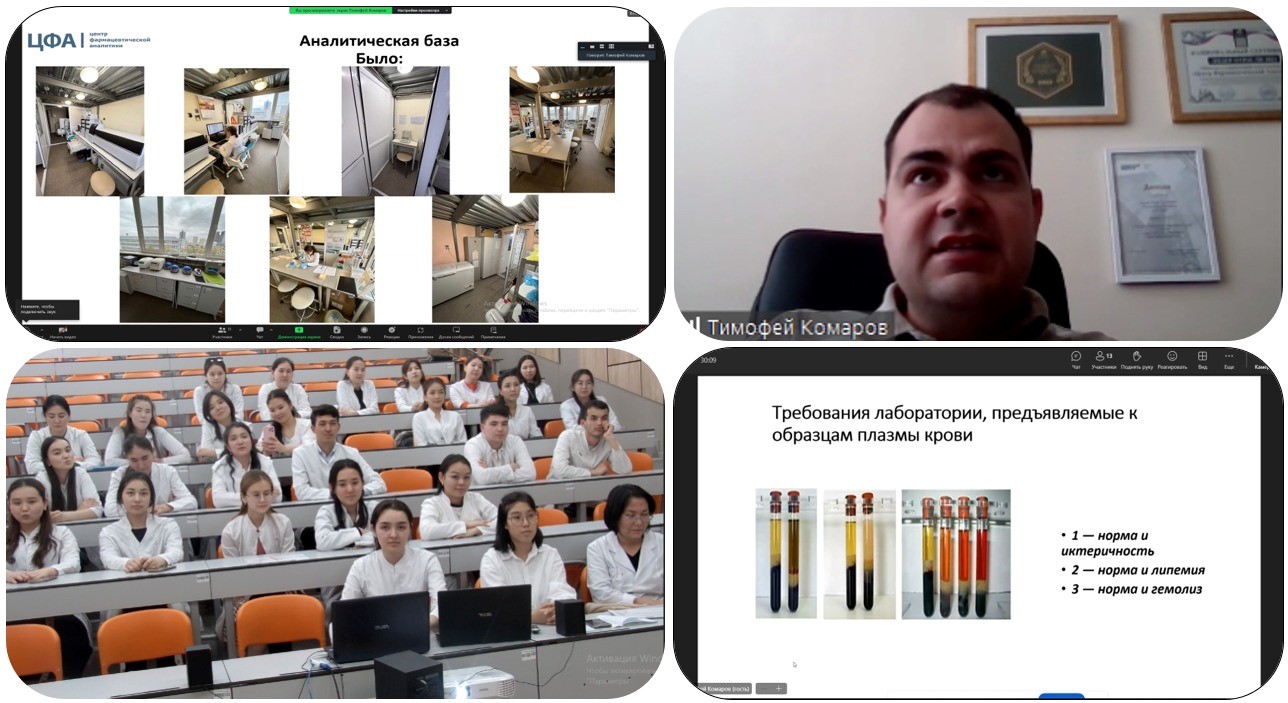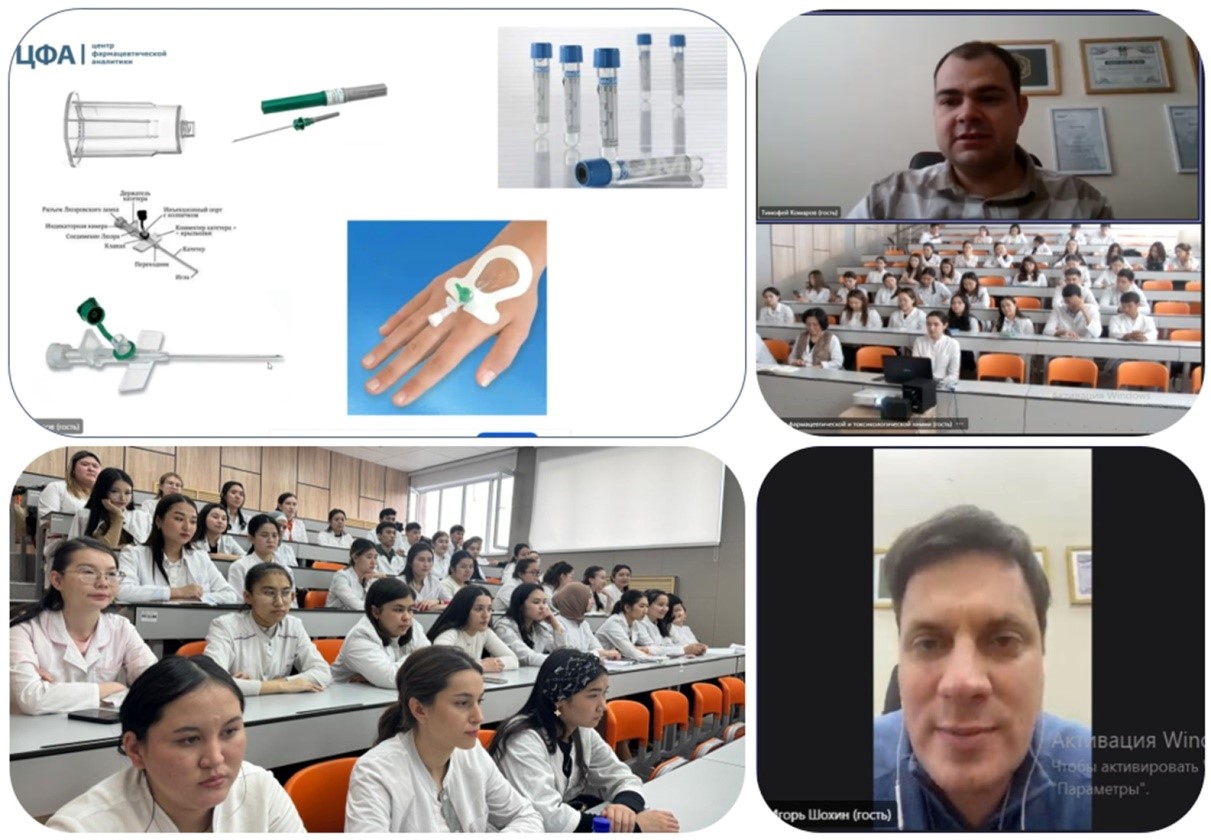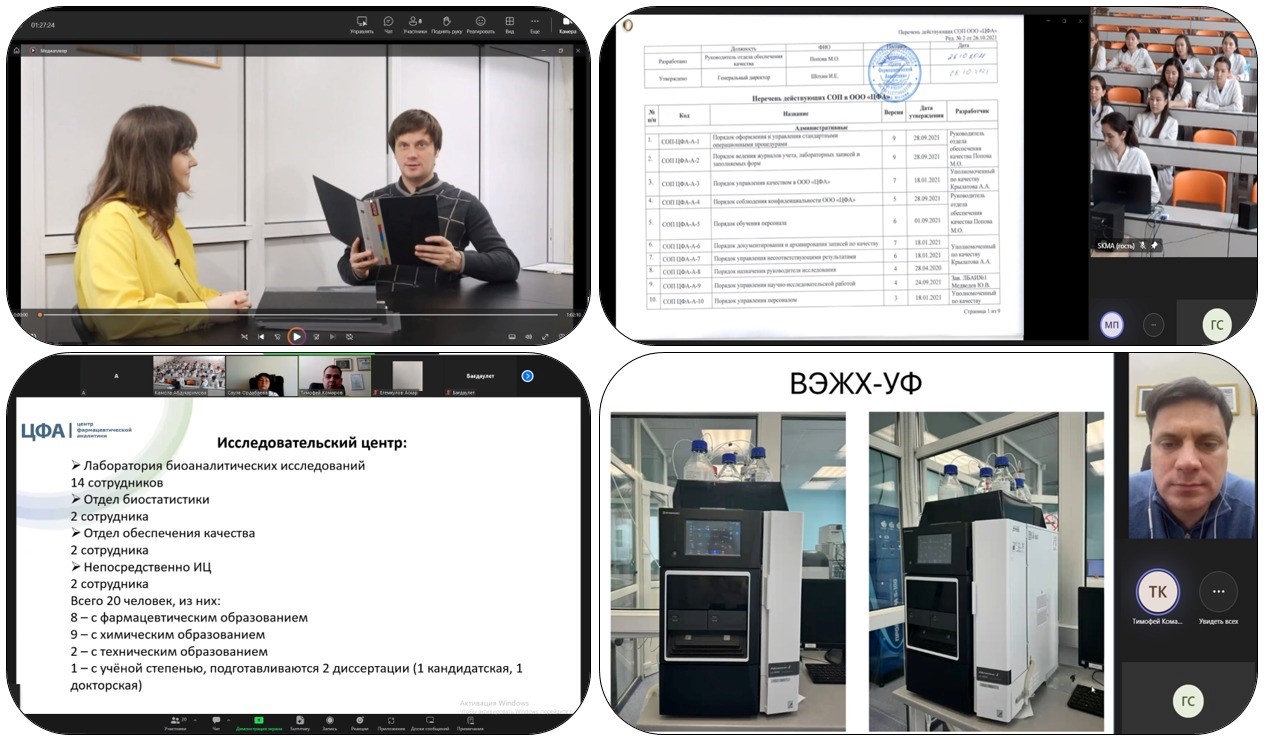Academic mobility of partners from the field of practical pharmacy
The Department of Pharmaceutical and Toxicological Chemistry hosted a visit from representatives of the pharmaceutical industry represented by the General Director of the Center for Pharmaceutical Analytics LLC (CPhA, Moscow, Russian Federation), Doctor of Pharmaceutical Sciences, Professor I.E. Shokhin, as well as the Director of the CPhA Research Center, Candidate of Pharmaceutical Sciences , T. N. Komarov. The interaction between the CPhA and SKMA is carried out on the basis of a Memorandum of Cooperation (2019), on the basis of which Academy students have the opportunity to undergo fragments of practical training in this organization.
The visiting program included introducing students, undergraduates, doctoral students and teachers to the practical activities of the Center, which was demonstrated in the form of a video review of all departments of this Center.

The theoretical block began with an introductory lecture “Modern bioanalytical center, structure and activities” and a video tour of the Center’s divisions, which showed the material base and equipment with modern analytical equipment.
Webinars and master classes were also held on the main activities of the center, which included topics such as “Pre-analytical sample preparation of biological fluids in a clinical center”, as well as “Theoretical and practical aspects of sample preparation of biological fluids”.
One of the important stages of bioanalytical research is a reliable and reproducible method for analyzing objects, so the classes on “Development of bioanalytical techniques: general approaches” were interesting for the students. Here the lecturers focused on the main research methods, such as high-performance liquid chromatography with UV and mass spectrometric detector. The theoretical approaches were described in detail, accompanied by video materials on the selection of chromatographic columns, selection of the mobile phase, internal standard and other chromatography conditions.

The lecture “Theoretical and practical aspects of conducting bioanalytical studies using immunobiological methods” was interesting. Enzyme-linked immunosorbent assay (ELISA) allows you to detect and measure the quantitative content of antibodies in blood serum. Currently, the ELISA method is widely used not only for diagnosing various diseases, but also for determining hormones, enzymes, medications and other biologically active substances contained in low concentrations in the test material.
An equally important stage is the validation of the developed analytical methods, which were devoted to classes on the topics: “Validation of analytical methods in quality control of medicines”, as well as “Validation of bioanalytical methods in accordance with modern requirements of the EAEU”, where regulatory documents of the Commonwealth countries were covered.
Lectures and classes on the topic “Quality management in a modern bioanalytical center”, which was accompanied by a practical lesson “Interactive audit of a bioanalytical laboratory,” were very relevant for the department’s employees.

The main activities of the DFA are a comparative test of dissolution kinetics (modeling of drug release in the gastrointestinal tract in vitro), statistical processing of the results of bioanalytical studies and description of the pharmacokinetics of drugs. Therefore, the lecturers, based on their own work experience, conducted classes on the topic “Conducting the analytical stage of research on the pharmacokinetics of drugs in accordance with the requirements of the EAEU.”
No less interesting was the lecture on general issues of conducting preclinical studies (PCT) of medicines, where the main stages of PCT and the requirements of regulatory documents of the EAEU countries for conducting such studies were outlined in detail.
An interactive lesson was held on statistical data processing when conducting studies of pharmacokinetics and bioequivalence of drugs, where each section of the lesson was accompanied by situational tasks and questions to consolidate the material covered.
The staff of the Department of Pharmaceutical and Toxicological Chemistry expresses sincere gratitude to our colleagues - the head of the Center for Physics, Professor I. E. Shokhin, and the director of the Research Center, T. N. Komarov, for such a rich academic mobility program, which covered current issues in the field of ensuring the quality, effectiveness and safety of medicines based on modern requirements of regulatory documents.
 577 views
577 views
